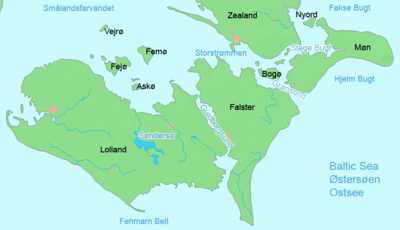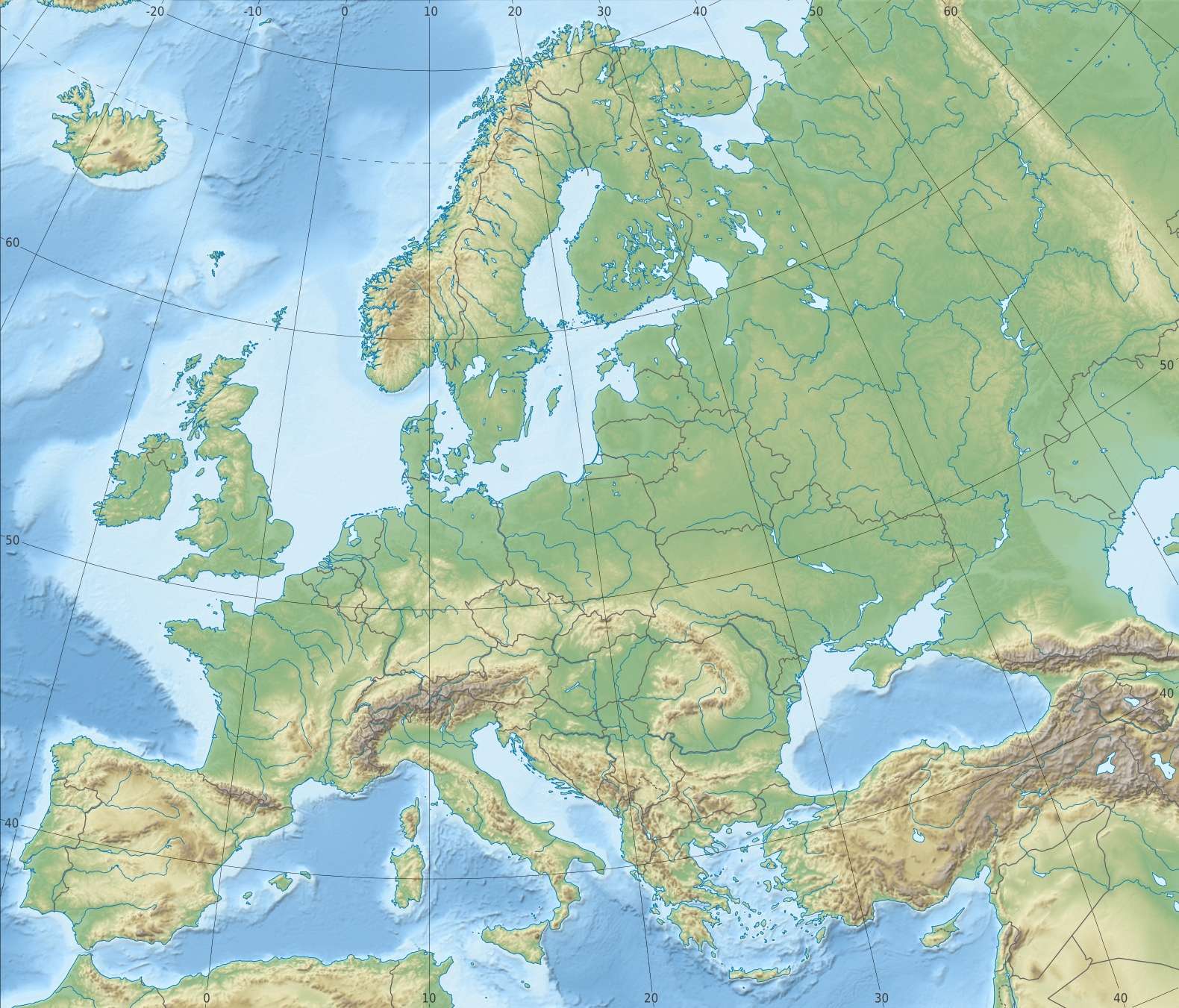Grønsund
Grønsund is a strait in Denmark separating the island Falster from the islands Møn and Bogø.
| Grønsund | |
|---|---|
 | |
 Grønsund | |
| Coordinates | 54°54′N 12°5′E |
| Type | strait |
| Basin countries | Denmark |
| Max. width | 4 km (2 mi) |
| Min. width | 1 km (1 mi) |
| Max. depth | 20 m (66 ft) |
| Islands | Møn and Bogø |
Geography
Grønsund's maximum depth is at approx. 20 metres and the width is between 1 - 4 km. Storstrømmen channel is situated to the west and Stege Bugt lies to the north between Zealand and Møn. A ferry crosses the channel in the summertime from Stubbekøbing to Bogø island. Grønsund has several shallow areas, i.e. near Bogø, and has a strong and alternating current.
Environment
Both submersed and riparian vegetation is rich, and the sound is an important breeding area for wildlife and fish. Many shore birds, including cormorants, mute swans, greylag geese, pintails, shovelers, eiders, avocets, several species of waders, as well as gulls and terns are breeding in the area. The porpoise lives in the area.
History
On October 2, 1943, the old ferry harbor in Gronsund was also a location used by the Danish resistance to transport fleeing Danish Jews on fisherman boats to Sweden to escape the German attempt to round up the Danish Jews, as detailed in Bo Lidegaard's book Countrymen.
Oil spill
On March 29, 2001, the oil tanker Baltic Carrier collided with the bulk carrier Tern in the western Baltic Sea, near the naval border between Germany and Denmark. 2700 tons of bunker oil leaked from the cargo tanks into the sea, affecting the Danish shoreline, especially Grønsund.
Sources
- Environment report, The “Baltic Carrier” Oil Spill.
- Status and management of important areas for breeding birds at the coasts of Storstrøms County, Denmark.
- Countrymen by Bo Lidegaard
